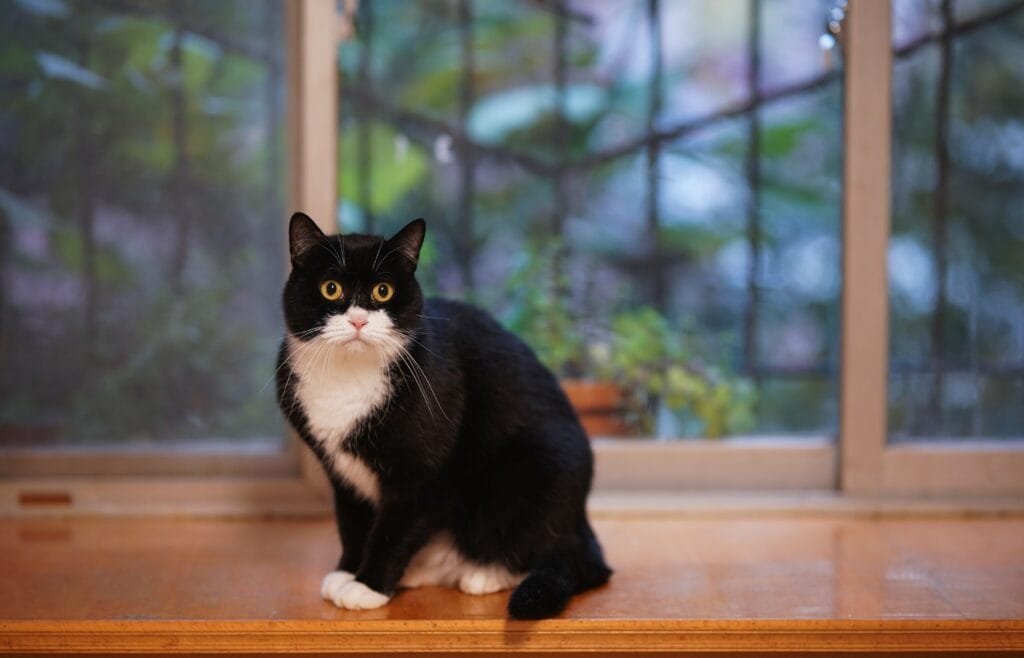So, you’re planning on raising bonsai trees inside your home, huh?
Then you’re in for a thrilling and enjoyable ride!
However, although they are quite rewarding, they can also be a little difficult to grow. To make things even more challenging, if you live with a feline friend, things become more difficult.
In this article, we will be talking about whether or not bonsai trees are toxic to cats. Moreover, we will be giving you some advice on how to choose a bonsai tree while keeping a cat in your house. Let’s get started right away without wasting so much time!
Does Keeping a Cat and Bonsai Tree Together Pose Any Risks?
Simply speaking, there really is nothing amiss with your cat eating plants. In fact, it’s beneficial for obtaining different nutrients from plants in particular circumstances.
Now, what kind of bonsai tree you pick is what you should be thinking about. Why specifically?
Not all bonsai trees are harmful to cats. Some bonsai species can even provide your cat with essential nutrients.
Whether your cat enjoys eating plants or not is another matter; when talking about toxic plants, you should always err on the safe side.
How much your cat likes eating plants is another factor that must be considered. If they do, planting bonsai trees might not be your thing. Due to the fact that even though a plant is perfectly safe and non-toxic, if your cat eats too much of it, it could still be harmful.
So, before you advance and make decisions, you must always take your cat’s behavior, preferences, and nature into account. We’ll go over some bonsai tree varieties that are often safe for cats, assuming your cat has no interest in plants or trees.
Which Bonsai Species Are Good for Cats?
It is impossible to predict which bonsai tree will be the best choice for your cat. For the simple reason that each cat is unique and responds to situations in a different way, as you already know, while some cats won’t even go near plants, others will keep nibbling until you get them off.
Here’s the good news: certain bonsai trees are safe for your cat to be around. If you have any of the following bonsai trees, you can relax knowing that your cat is safe.
Juniper Trees
Growing Juniper bonsai trees is fairly common in the bonsai community. They have the very attractive appearance of bonsai trees and are simple to maintain. They are a great option for producing bonsai trees because of their compact growth characteristics. Most importantly, they don’t contain any chemicals that are hazardous to cats, so your cat will be safe with this tree.
Bamboo Palm
If you want a simple and easy way out of your bonsai growing experience, the bamboo palm can be a good solution. Although they won’t be as beautiful to look at as a Juniper bonsai, they are still quite simple to grow. They often have shallow roots, which are completely capable of withstanding the pruning technique. These are also completely safe for your cats.
Money Tree
With some money tree bonsai, you can bring fortune into your house. People love to believe that money trees are plants that can help their homes become prosperous. Why not? It is also very easy to maintain, considering the time. The greatest part is that it doesn’t include any harmful hazardous substances that could hurt your cat. However, it might cause a minor upset in their stomach if they have trouble digesting the plant, but nothing more.
You might also try looking for prayer plants, hibiscus, Fukien tea, Japanese maple, etc. in addition to these trees. These plants are likewise harmless to your cats and have no negative impact on them.
Which Bonsai Trees Should Cats Stay Away From?
You must not pick some bonsai species if you have a cat, regardless of their nature or propensity to consume plants. If you have a cat at home, you must absolutely avoid these bonsai trees.
Sago Palm Tree
This tree must be avoided by anyone who owns a pet. Any pet shouldn’t be near this one because it is dangerous to all animals, not only cats. Whether it is the leaves, roots, or stems, it is extremely toxic. This tree’s seeds are also poisonous. If your cat eats even a small piece of this plant, the poison will begin to work within 15 minutes. Therefore, cultivating bonsai trees when you have a cat is a big no-no.
Azalea
If you own a cat, you ought to stay away from this poisonous tree as well. Although it is one of the most stunning bonsai trees, it is also one of the most toxic. Any part of this tree has the potential to kill your cats. If your cat even eats a small amount of this plant, it will have detrimental effects.
Jade Plant
Well, when it comes to bonsai trees, Jade is a traditional option for many individuals. However, if you have a cat living in your house, it shouldn’t be your choice. All parts of the plant have poisonous components. If your cat eats even a small amount of this plant, it will start to manifest poisoning symptoms right away. This plant might be extremely fatal to your cat.
In addition to these three major bonsai, it would be beneficial to stay away from plum, cherry, fig, and other trees.
Symptoms of a Cat’s Bonsai Tree Poisoning
As previously stated, your cat’s condition is not just dependent on the type of tree; it can also be worsened by its abundance. If that occurs, you should watch out for your cat exhibiting any of the following symptoms:
- Diarrhea
- Vomiting
- Uncomfortable or aching stomach
- Loss of appetite and drooling
- Excessive panting
- Slow heart rate
- Weakness
- Lack of movement
- Seizure
- Lethargy
- Coma
If you have a bonsai tree and notice these symptoms in your cat, bonsai tree poisoning may be to blame. In most situations, you must call your veterinarian right away. However, you can test out some simple treatment options in the early stages. Let’s quickly review them.
Treatment Options for Bonsai Poisoning
Contacting your regular veterinarian right away is the recommended course of action. Of course, they can’t treat your pet right away. So, you’ll have to take measures to keep your cat safe.
The first step is to take out any pieces of the bonsai tree that your cat may have consumed. If you could, take it out of their mouth and immediately wash it out.
After that, keep an eye on your cat and keep an eye out for any signs to identify what plant they may have eaten. This will make it much easier for your veterinarian to find prompt care.
Let’s Wrap Up
In conclusion, depending on the species you select, bonsai trees may or may not be toxic to cats. Some have no negative effects at all, while others have the potential to be fatal to cats. The best choice is usually a feline-friendly species if you want to maintain your cat and bonsai tree at the same time.
It’s always a good idea to do your homework, whether your cat loves plants or has no interest at all. When deciding where to put your bonsai tree, make sure it’s safe for cats to be around because you don’t want them to clash.
Explore our website for more!


